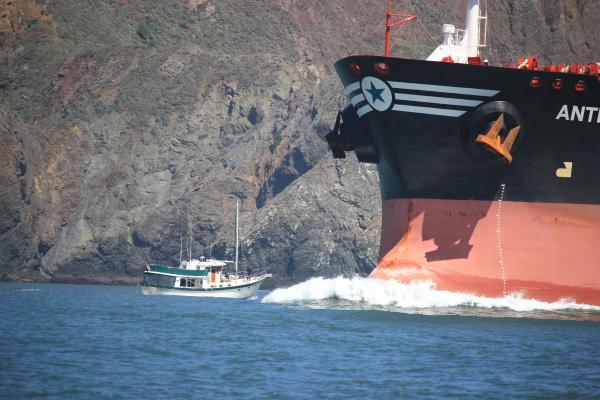markpierce
Master and Commander
- Joined
- Sep 25, 2010
- Messages
- 12,557
- Location
- USA
- Vessel Name
- Carquinez Coot
- Vessel Make
- penultimate Seahorse Marine Coot hull #6
As for blowing the correct number of horn blasts? It is extremely unlikely anyone would know what a certain blast would mean. So blowing the horn to attract attention is probably the only blast Skipper Cave could have done.
... Apparently there is no point in using or even knowing the correct signals. Everyone should just go out and get one of those car horns that plays pieces of songs. Like say Dixie. That should get another vessels attention just fine.
Based on many of the responses to this tread I think you're spot on.
Apparently there is no point in using or even knowing the correct signals. Everyone should just go out and get one of those car horns that plays pieces of songs. Like say Dixie. That should get another vessels attention just fine.

 whistling Dixie
whistling Dixie  in trying to bring some formality to horn signals.
in trying to bring some formality to horn signals.
Greetings,
Mr. 47. "...universal licensing and MUCH more training..." Vehicles driven on the roads require this. I rest my case.
Is anyone but me having the thought that the tone of this thread argues pretty strongly for universal licensing and MUCH more training than any state, to my knowledge, requires for pleasure boaters? Don't think anybody here wants that but come on folks, please stop arguing against knowing the rules. Bill
...
I am sure those that know and use the sound signals make sure to always make their long blasts between 4 and 6 seconds in length. Right?
Do not point your hand across your body, use either your right hand or your left hand to point to the other vessel and then track its proposed relationship with you through your meeting or passing situation. If the boat is overtaking you then you have to turn around to point at it and track through the situation. If you are using your right hand its a two whistle situation if you are using your left its a one whistle. If the vessel is ahead of you whether meeting or passing it you do not have to turn around to see it. Same thing though, left or right hand tracking through the proposed meeting no pointing across your body.
As a former (very recently) sailor, I didn't realize that there was so much animosity towards them for not knowing the rules of the road. Of course, I was well aware of the wayward ways of those ignorant power boaters. Hmmm, I wonder what's going on there?
As you can see, as a former sailor I tried 5 short blasts to get this stupid ship out of my way, but the ignorant pilot just kept going.

Richard

Is anyone but me having the thought that the tone of this thread argues pretty strongly for universal licensing and MUCH more training than any state, to my knowledge, requires for pleasure boaters? Don't think anybody here wants that but come on folks, please stop arguing against knowing the rules. Bill
Makes good sense. All Australian States now require this. About time the US and Canada...maybe the UK as well...caught up. It is the 21st century, after all.
Yeah but...Canada had had recreational competency testing for over ten years now. Mandatory for the last six.
Yeah but...
The competency exam can be taken online and someone else can do it for you.
A certificate of competency can be issued by completing a rental boat safety checklist.
BTW, in case our neighbours did not know...
US citizens can use their State competency certificate (if there is one) in Canadian waters, for up to 45 days before requiring a Canadian Certificate.
